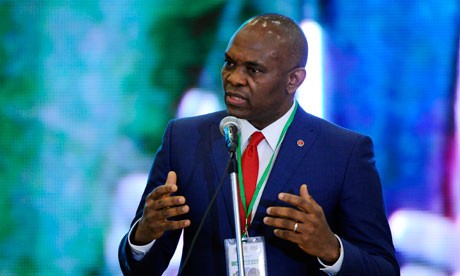Tony Elumelu redirects the priorities of Nigerians as the 2023 Elections draw near
- Posted on March 18, 2022
- Stock Market
- By Faith Tiza

Tony
Elumelu Redirects the Priorities of Nigerians as the 2023 Elections Draw Near
Tony Elumelu takes to Twitter to convey his deep
dissatisfaction with the Nigerian government's performance.
He also mentions that this is a serious topic on his
mind, as well as the minds of his colleagues, who are worrying about how the
average Nigerian's economic and living situation is deteriorating by the day.
Nigerians who have been waiting for an improved
electricity supply for the past eight years may have to wait longer, as
inherent obstacles may hinder power generation at this time.
Despite the fact that electricity is a significant
predictor of economic development, with access to power expected to catalyze
nations' industrialization efforts, supply to homes and businesses in Nigeria
has remained poor due to a botched privatization process.
Following the third national grid collapse last week,
the electricity situation has gotten worse and certain places experiencing a
total blackout for up to 5 days. This also comes simultaneously with the
announcement of the tariff increase to be expected after every 6 months.
A sharp increase in the price of diesel, the fuel that
fuels a substantial portion of the Nigerian economy's industrial and commercial
activity, has reverberated across the economy, from manufacturing behemoths to
small-scale businesses.
Diesel has a stronghold on Africa's largest economy,
from massive diesel generating plants that turn industrial machinery in Nigeria
to trucks used for long-distance hauling of both industrial and finished
commodities, to little machines utilized by small-scale firms.
As the country confronts the scourge of fuel price
hikes, this has put an unprecedented strain on the economy, endangering its
ability to provide products and services.
Diesel prices have risen from N300 per litre at the
start of the year to above N700 per litre, putting the cost out of reach for producers.
The country's electrical supply has collapsed,
exacerbating the impact of the price hike. The national grid collapsed three
times in two days, putting nearly the whole country in darkness.
According to the Nigerian National Bureau of
Statistics, the cost of food in Nigeria climbed 17.13 percent in January 2022
compared to the same month the previous year.
According to Paul Alaje, senior economist at SPM
Professionals, an economic development research firm, Nigeria, as a top
producer of crude oil, is expected to generate more revenue as the crisis has
resulted in sporadic increases in the cost of crude per barrel, of which
Nigeria produces about 1.8 million barrels per day.
Alaje, on the other hand, decried the fact that
Nigeria is unprepared for benefits because it is a net importer of gasoline,
which means the country will be compelled to spend more on fuel importation,
driving up local commodity prices and manufacturing expenses.
"The government used to spend roughly N1.8
trillion on gasoline subsidy payments, and it would continue to do so in the
future." He added.
In light of the aforementioned three factors, Tony
Elumelu encourages Nigerians to stand up and demand better governance than the
existing leadership as the 2023 elections approach.


Be the first to comment!
You must login to comment